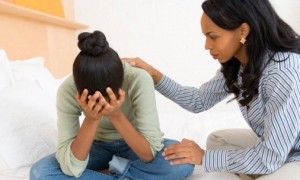Parenting is a Lifelong Endeavor
 Have you seen the U.S. Department of State’s definition and legislation for legal adulthood? The DOS website states:
Have you seen the U.S. Department of State’s definition and legislation for legal adulthood? The DOS website states:
“When a child reaches the age of 18, they [sic] become a full legal adult in most U.S. localities. That may not be the case in overseas environments, where the age for acquiring adult status under another country’s jurisdiction may differ significantly.
“In any event, those turning 18:
“Need to be encouraged to register to vote in U.S. local, state and federal elections.
“Can join the military, receive medical care, get married and receive a number of other adult privileges and responsibilities without parental consent (emphasis mine).
“Need to be reminded, if they are male, to register for the Selective Service.”
Our judicial system may need to set specific ages for certain laws, but the term “without parental consent” raises a threatening red flag. A government-defined age for adulthood suggests a hands-off policy for parents that can lead to increasingly more serious problems. Already, we’re seeing state laws that allow minors access to birth control and even abortion without their parents’ knowledge, much less their consent. What’s next?
Even more, I see parents incorporating the government’s concept of adulthood into their parenting styles — with devastating effects. I see parents with 18-and-older children throwing up their hands and surrendering their parenting authority and responsibility when their kids make decisions that are dangerous to their physical, emotional and/or spiritual well-being.
“He/she’s over 18! There’s nothing I can do about it,” they lament. They stand back while their children destroy their human and possibly eternal lives. It’s painful to watch.
Parenting does not stop when a child turns 18. Indeed, it continues for all eternity, as Blessed Pope John Paul II said in his “Letter to Families” on Feb. 2, 1994:
“Even when they grow up and set out on their own path, young people remain intimately linked to their existential roots (emphasis original).
“Against this background, we can see the meaning of the Fourth Commandment, ‘Honor your father and your mother’ (Exodus 20:12). … The commandment of the Decalogue calls for a child to honor its father and mother. But, as we saw above, that same commandment enjoins upon parents a kind of corresponding or ‘symmetrical’ duty. Parents are also called to ‘honor’ their children, whether they are young or old.”
Parents have both the right and obligation to continue to guide their children throughout their lives. That guidance comes in many ways, but they all begin with a solid relationship that includes open communication, mutual respect and rightful authority. If parents surrender their authority to the state, all will be lost.
The parent-child relationship is vital and irreplaceable, even into adulthood. Young adults are forging their own way and need the advice and counsel of their parents.
The faith foundation parents provide their children should help them along the way, but the varied important choices and decisions — in the midst of a culture that is so often opposed to Judeo-Christian values — need parental support. This is particularly true if those young people are straying from Catholic morality.
Parents should remain as involved in their children’s lives as possible, not in a controlling way, but in a sincerely interested, encouraging, loving and hope-filled way. It’s important to let them know when they’re making good choices and wrong choices alike. It’s important to guarantee them unconditional love. But loving them is not the same as approving all of their actions.
Don’t sit back. Speak up in charity. Reiterate Church teaching. Discuss important issues.
Above all, parents must diligently pray, fast and offer sacrifices for their children (regardless of their age), because this is the ultimate parental authority and responsibility. By interceding for their children before God, parents exercise an unparalleled good for their children.
The government can legislate an arbitrary age for adulthood, but it cannot legislate the role of parents — unless we allow it to.

